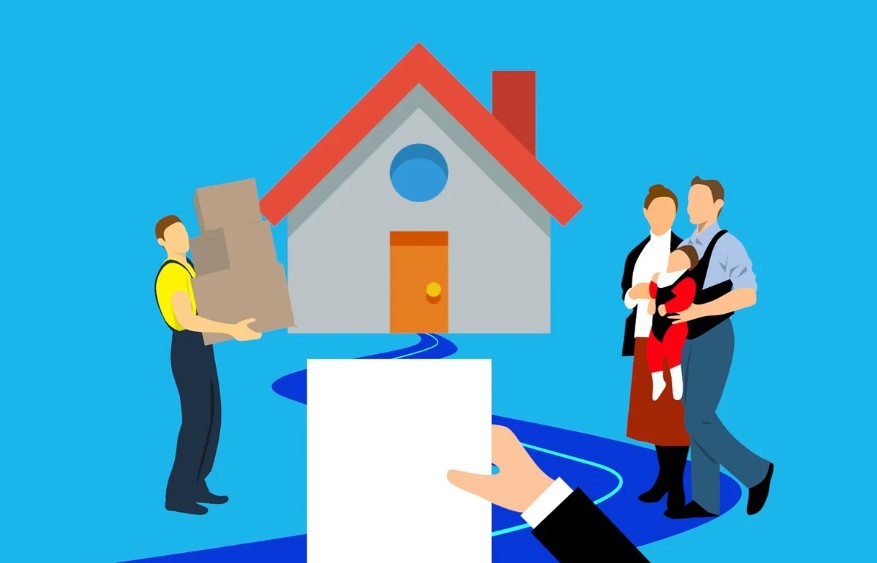Housing costs are one of the biggest concerns for people across the UK, especially in the current financial climate. Whether you’re renting privately, from a housing association, or you’re unsure what support is available, one of the most pressing questions remains: How much Housing Benefit can I get?
In this comprehensive guide, we’ll answer this question in detail, explore how Housing Benefit works, what factors affect it, and what real people across the UK have experienced when applying.
What is Housing Benefit, and Who Can Claim It?
Housing Benefit is a government scheme in the UK that helps people on low incomes pay their rent. It’s designed for those who are struggling to cover housing costs, whether you’re unemployed, on a low wage, or receiving other benefits.
You can typically claim Housing Benefit if:
- You rent your home.
- You are on a low income or claiming benefits like Universal Credit, Income Support, or Jobseeker’s Allowance.
- You meet immigration and residency rules.
- You are not subject to the ‘benefit cap’ limit (although some exceptions apply).
Housing Benefit is now being gradually replaced by Universal Credit, but you may still be able to claim it if:
- You are of State Pension age.
- You are in supported, sheltered, or temporary housing.
Important:
If you are a new claimant, you will most likely need to apply for the housing cost element through Universal Credit unless you are in one of the exceptions mentioned.
How is Housing Benefit Calculated?

Many people believe there’s a fixed amount, but Housing Benefit is calculated based on your personal circumstances. Key factors include:
- Your income (wages, pensions, benefits).
- Your savings (if over £6,000, it can reduce your benefit; over £16,000 usually disqualifies you unless you get Pension Credit).
- Your rent amount and whether it is considered ‘reasonable’ based on your local housing allowance (LHA).
- The size of your household (number of people living with you, including non-dependents).
- Your age (if you are under 35, you may only get help for a single room in shared accommodation).
- Your location (Housing Benefit is influenced by LHA rates, which vary across the UK).
The Local Housing Allowance (LHA) sets the maximum Housing Benefit you can receive based on the average rent in your area.
Example:
If you live in Birmingham and rent a two-bedroom flat, your LHA rate may be £600 per month. If your actual rent is £700, Housing Benefit would likely be capped at £600, meaning you would need to cover the difference.
How Much Housing Benefit Can I Get?
The exact amount you can receive depends on several factors. There’s no flat rate – the benefit is carefully calculated based on your unique circumstances.
Key Factors That Affect How Much You Can Get:
- Your income: Both earned (wages, self-employment) and unearned (other benefits, pensions, etc.) are considered.
- Your savings: If you have savings over £6,000, they will start to reduce the benefit. Over £16,000 usually disqualifies you.
- Your rent amount: The rent must be considered “reasonable” based on local standards.
- Your Local Housing Allowance (LHA) rate: This is the maximum amount of Housing Benefit you can receive in your area. It depends on where you live and the size of your household.
- Your household size and makeup: The number of people living with you, their ages, and their relationship to you matter.
- Non-dependent deductions: If other adults live with you (like grown-up children or friends), the benefit is often reduced.
Example Scenarios:
- Single Parent in London: A single mother renting a two-bedroom flat in London could get a Housing Benefit close to the LHA rate if she has a low income and no other adults living with her.
- Working Couple in Manchester: A couple with part-time jobs may get reduced Housing Benefit if their combined income is above a certain threshold.
What is the Benefit Cap and How Does It Affect Housing Benefit?
The Benefit Cap limits the total amount of benefits you can receive. If your combined benefits exceed the cap, your Housing Benefit is usually reduced to bring your total benefits under the cap.
Current Benefit Cap Levels (Outside Greater London):
- £423.46 per week for couples (with or without children).
- £423.46 per week for single parents.
- £283.71 per week for single adults.
If your Housing Benefit pushes your total benefits above these amounts, your Housing Benefit will be cut.
Can I Get Housing Benefit If I Work?
Yes, you can. Many people think Housing Benefit is only for the unemployed, but you can still qualify if you are working, provided your income is low enough.
However:
- Your earnings will be considered when calculating your entitlement.
- You may still qualify for partial support if your income is just above the threshold.
- Childcare costs, disability premiums, and some earnings disregards can reduce how much of your wages are counted.
In fact, thousands of working families across the UK receive Housing Benefit to help make ends meet.
What Happens to Housing Benefit if I Move House?

When you move house, you must report the change immediately because:
- Your Housing Benefit entitlement could change based on your new rent and your new Local Housing Allowance rate.
- You might need to make a new claim under Universal Credit if you are not eligible to continue with Housing Benefit.
Many people have found their benefits reduced or overpaid when they didn’t update their details quickly enough, which can cause future repayments.
Can I Appeal if I Think My Housing Benefit is Wrong?
Yes, you can challenge a Housing Benefit decision if you believe:
- Your award has been miscalculated.
- The council has applied the wrong Local Housing Allowance rate.
- The decision did not account for your full household or financial situation.
You must usually ask for a mandatory reconsideration within one month of the decision. If you are still unhappy after that, you can appeal to an independent tribunal.
Appealing can be complicated, but local advice centres, housing charities, or Citizens Advice can help guide you through it.
What Are Common Mistakes People Make When Claiming Housing Benefit?

- Failing to report changes quickly (like moving house, changes in income, or people moving in/out of your home).
- Assuming you don’t qualify if you’re working.
- Not checking the Local Housing Allowance correctly for your area.
- Missing deadlines for appeals or additional documents.
- Overlooking deductions for non-dependents living with you (this can reduce your entitlement).
Understanding these pitfalls can help you avoid delays or overpayments that you might have to pay back later.
Final Thoughts: How Much Housing Benefit Can I Get?
There’s no single figure that fits everyone when it comes to Housing Benefit in the UK. Your entitlement depends on where you live, your household size, your income, and your rent.
If you’re struggling, don’t guess — check your eligibility using official calculators or speak to your local council. Getting the right support at the right time can make a huge difference.
Housing Benefit has helped countless people across the UK stay in their homes during tough times. Knowing how the system works — and how to navigate it properly — can give you the financial breathing space you need.






